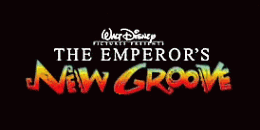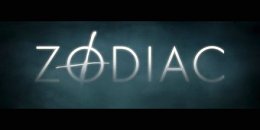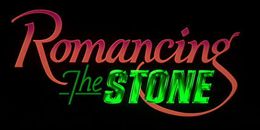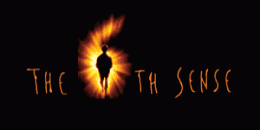Desperately Seeking Susan, 1985
Scoring the star vehicle for the legendary music artist Madonna is probably no easy feat for an up-and-comer. But in this Golden Globe-nominated comedy, where lonely Rosanna Arquette lives out her fantasy of real-life excitement by snooping on a personal ad relationship, Newman does what he's supposed to. Though there are no big revelations to be found in his score, he fits to the '80s comedy mold by including plenty of synthesizer. It is interesting how you can already start to hear his musical voice in these tracks, though - there's definitely some bits of Lemony Snicket hidden in the "Battery Park/Amnesia" selection. [Link]Jumpin' Jack Flash, 1986
He got his fill of teen comedies in the time between Desperately Seeking and this, an action comedy starring a relatively new Whoopi Goldberg as a banker who gets caught up in a KGB money-laundering scandal. His two contributions that are available on the soundtrack recording are starkly different. One, in typical '80s comedy fashion, utilizes heavy saxophone and snippets of light jazz, while the other is Newman what he would later rely heavily on for Revolutionary Road, simple piano melodies. Again, this is hardly earth-shaking work, but it's welcome and fitting for the task at hand. [Link]
The Lost Boys, 1987
At last - it seems Newman finally got to take a turn at horror, though The Lost Boys borders on the laughable it seems with its cast of '80s usual suspects, Kiefer Sutherland and Coreys both Haim and Feldman. The music at hand is genuinely fun for the most part. It relies heavily on organ chords, though, that are far too reminiscent of Andrew Lloyd Webber's Phantom of the Opera, which incidentally opened the year before. Not having seen this movie, I would imagine that its notoriously hokey nature was probably trumped by Newman's semi-eerie score. [Link]
Fried Green Tomatoes, 1991
After a series of little-seen movies, Newman finally landed a high-profile critically-acclaimed drama in the form of this film, telling the tale of a young nurse listening to stories of yore from a nursing-home patient. This soundtrack proves a lot subtler than some of Newman's work on comedies and action movies in the '80s. In addition, we see the beginning of his love affair with woodwinds, as oboes and clarinets are heavily used throughout. The pieces in this score are less familiar to me in his earlier or later work, so perhaps this one stands on its own rather well. [Link]
Scent of a Woman, 1992
Though this movie has its fair share of detractors out there (namely those who were upset that this was the one Al Pacino finally won his Oscar for, as opposed to his more highly regarded earlier work), its story of a blind man's relationship with a young assigned buddy is buoyed by Newman's score. There are definitely heavy influences of non-traditional string instruments used in Lemony Snicket at play here, and the flowing portions of cellos in the more docile pieces are seemingly pulled right from the Finding Nemo score. But it's only fair that composers pull from their own previous work, I suppose; especially one with such prolific tendencies. [Link]
The Shawshank Redemption, 1994
Arguably the writer's greatest score to date, The Shawshank Redemption is probably one of the most sampled entries in cinemas of the past 25 years. And 1994 proved to be Newman's big break in terms of the Academy Awards, as this and the entry below it tied for his first and second nominations. Aside from the fact that the film he's working on here is fantastic, his score is sweeping, epic brilliance. You really can't get much more gorgeous than this, and the Oscars truly should've responded as such. Sure, he's had some stellar works since, but this has got to be the pinnacle. [Link]
Little Women, 1994
Starkly contrasting his other work from the same year, the delightful score to Little Women, the timeless tale of four sisters and their doting mother in Civil-War-era America, is equally beautiful but so much more full of life. Thanks to his wintry uses of strings and oboes, and then later to his grandiose uses of those same strings and now brass to signify a robust Christmas spirit, it's pretty glorious to listen to. As I've found, it's one of the most inspiring soundtracks to listen to when writing. Seriously, give it a try and you'll never turn back. [Link]
The Horse Whisperer, 1998
Though I've never seen this critically polarizing Robert Redford starrer, I was told recently that the soundtrack was worth a listen. And it's true - Newman has some very unique work here. It's difficult to place the music with the film's plot, a man brought in to mend the being of a horse and a troubled girl simultaneously, with its jaunty tendencies, but it's great fun to listen to, and there are some very romantic segments. Let's just hope it did something to aid what some critics felt was zero chemistry between Redford and the wonderful Kristin Scott Thomas. [Link]
Meet Joe Black, 1998
Sure, this movie was called overlong and maybe a bit too into itself, but I hesitate to say that the 3-hour flick about a man (Anthony Hopkins) being advised in life decisions by Death (Brad Pitt) is a wonderful film. And to boot, it has one of the loveliest main melodies I've heard. Check it out - it's haunting with its use of the string section (it sounds as if every string player in the world had a part in this), and though the movie had its flaws (its runtime probably one of them), it seems as though Newman was really hitting his dramatic stride in the late 1990s. [Link]
American Beauty, 1999
Though I've never truly understood the big giant hoopla surrounding this suburban drama, despite some great performances from its two leads, it's too bad the score wasn't one of the wins it achieved on Oscar night. It's interesting to note here, though, its profound similarities to his other suburban melodrama (though set in an earlier decade), with its simplistic piano tropes. Unfortunately, in the end, I find its protege, Revolutionary Road, to have a superior score (though I can't say the same of the film itself). [Link]
In the Bedroom, 2001
What a treat! What I found to be a truly original score in his filmography, I was sort of surprised to find out that this wasn't written by James Newton Howard. The movie itself is brilliant, mixing family drama with a tinge of romance and a whole lot of unnerving suspense. The score is a unique entry in this list - the use of unusual stringed objects (I presume?) is so jarring it beautifully associates with the movie you're viewing. And not to mention the cover art make a great accessory to this soundtrack. [Link]
Road to Perdition, 2002
A first-time entry for Mr. Newman, this Oscar-nominated score accompanies a film about a hitman taking considerations about his life when his son becomes witness to his crimes. The score has the rise and fall, ebb and flow effect that is standard in a Newman score - though I appreciate its literal use best in the next entry, and I hate to say it, but it's hardly a memorable entry. Though I'm sure its effect in the film itself (perhaps someone else can verify) meets its purpose, but I don't find it all that riveting or unique from this stand-alone standpoint. [Link]
Finding Nemo, 2003
Aaaaand, I take everything bad I just said back. I find Newman's score to the sweet Pixar blockbuster Finding Nemo to be both far too lovely for your average animated movie and playful at all the right moments. As I said, the ebb and flow effect obviously makes complete sense in this setting. And as this movie so delicately portrays the bond between father and son, the music just can't be beat in terms of identifying with its characters. Well done. [Link]
Angels in America, 2003
Gosh, I love it when film composers dabble in television work on occasion. And somehow HBO has a knack for convincing them to make that change. Newman's score for the miniseries Angels in America, channeling the lives of people directly or indirectly affected by the AIDS epidemic, is regal when it needs to be (there are assuredly portions, namely the fantastical Emma Thompson archangel segments, that call for this) and heartbreaking when it doesn't (check out that Main Title for proof). It's truly a shame this couldn't have won him his eventual Oscar - I'd rank it in my top 5 of his pieces most likely (but get back to me later on that one). [Link]
Lemony Snicket, 2004
There comes a lot of pressure when a popular children's novel or series of novels go(es) into production on a filmset. Everybody wants the next Harry Potter or Lord of the Rings on their hands. And though Daniel Handler's series of well-written gems didn't really take off in cinemas (not enough to gain a sequel), this one-off entry had so much to offer visually and aurally. Though it seems the type of work that would usually be given to Danny Elfman, Newman makes great things happen in the drab, but whimsical, world of the Baudelaires. It's a treat to listen to, if a bit repetitive at times. As an avid reader of the original series, he totally capture the right themes here, though. [Link]
WALL-E, 2008
Thank goodness those geniuses over at Pixar had the good sense to pay Thomas Newman a return visit to work on the gem of their crown, WALL-E. The movie is about a naive little trash-compacting robot who finally sees the universe around him through the eyes of his one true love, fellow robot EVE (stop - I know how sappy I am). The score combines the best flavors of great sci-fi John Williams scores with the childish whimsy you're used to seeing in Disney music. While he uses his usual strings and woodwinds, he understands the need for billowy brass when there's a world to save. And his incorporation of those bits from Hello Dolly! is priceless. [Link]
Revolutionary Road, 2008
I'm going to end with this one as it seems I'm getting a little excessive with my tribute (but goes to show what I said earlier about his prolific tendencies is true, eh?). Newman's best effort of late is clearly his 2008 work. With the magic of WALL-E, he paired this, a suburban melodrama. The music relies heavily on a central theme played effortlessly on the piano (his mainstay throughout his career, even though in earlier years it was an electric piano). Though the movie was a major downer for theater-goers, his theme and variations approach to the soundtrack worked wonders with the brilliant art direction. [Link]
**Additional Newman works not included here, but perfectly notable: How to Make an American Quilt, Phenomenon, Oscar and Lucinda, The Green Mile, Erin Brockovich, White Oleander, and Little Children**
Now tell me, what are your favorite Newman efforts?



























































1 comment:
Ahhhh thank you Luke! What a great post. I was thinking about Thomas Newman recently and he is probably one of my favorite composers working. I think my favorites are "American Beauty" and "Wall-E". Actually, "Wall-E" just kills me every time.
Post a Comment